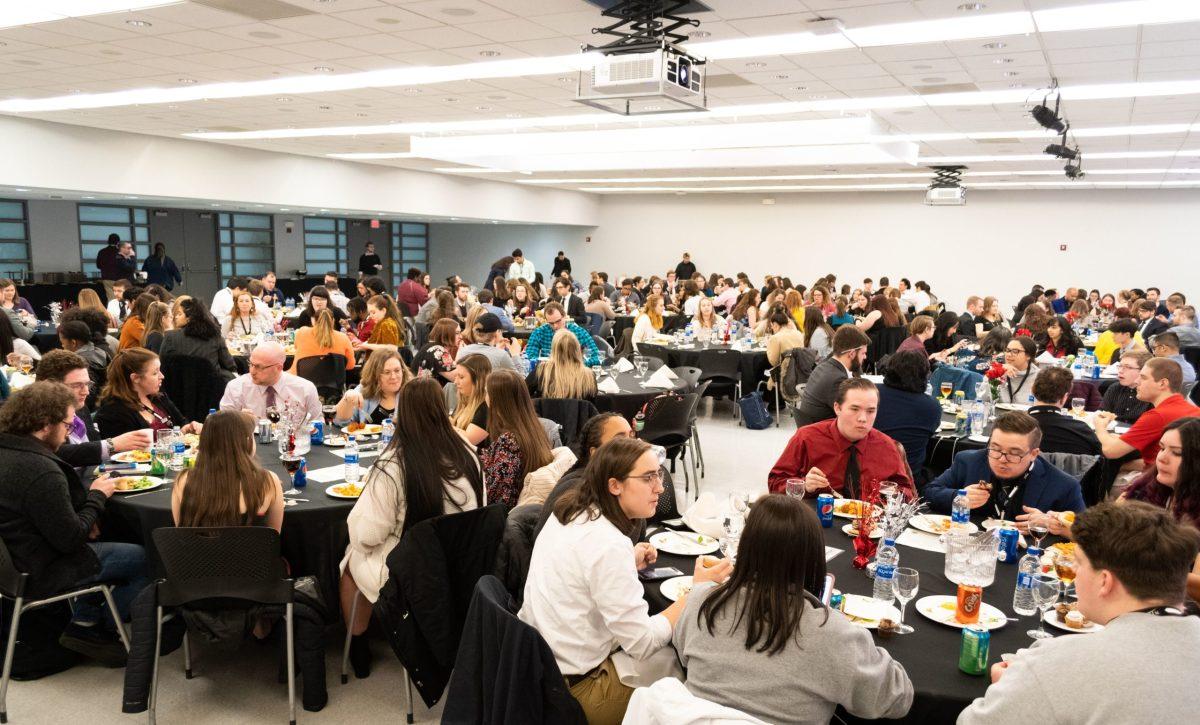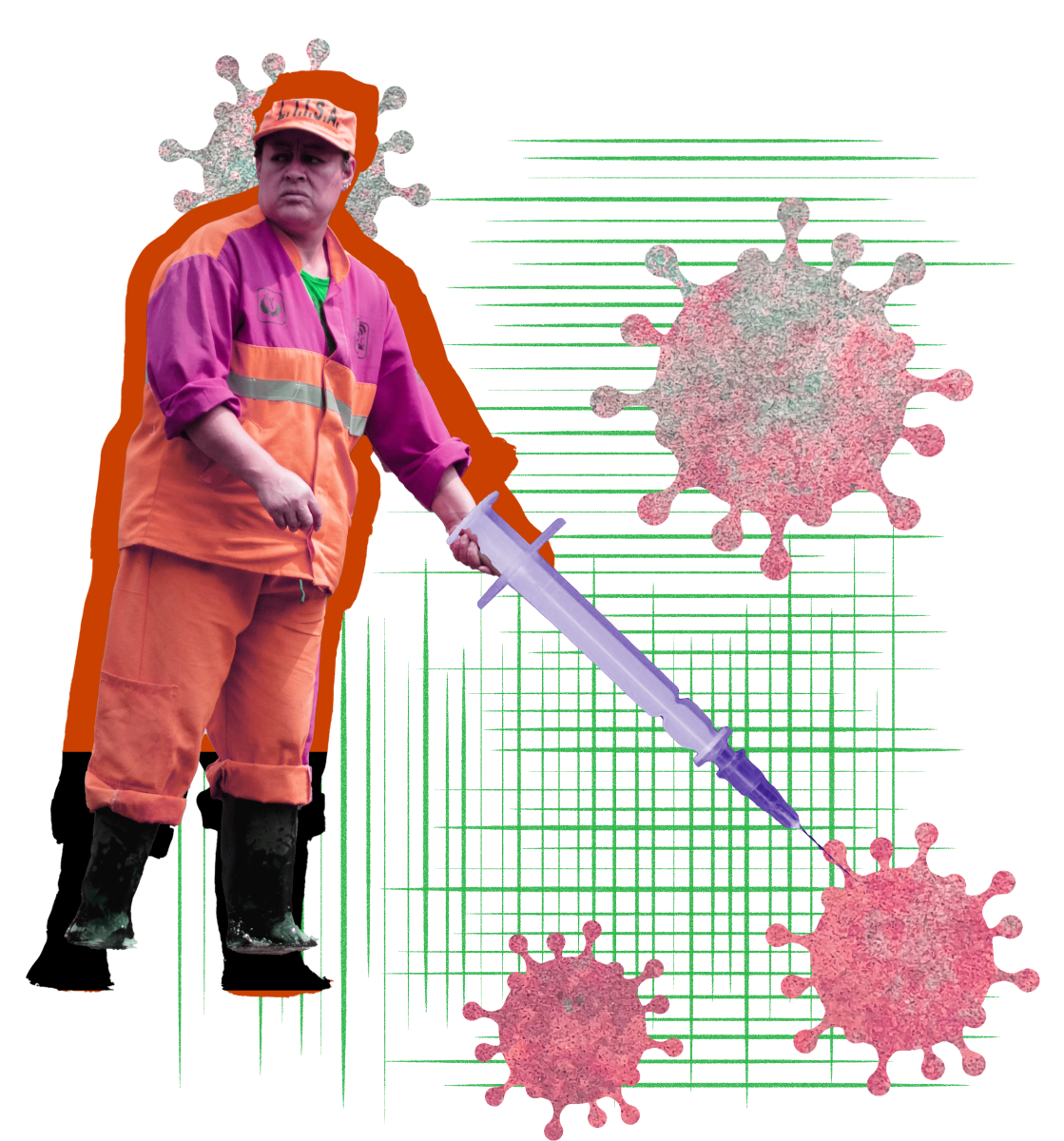On the weekend of Feb. 21 to 23, the NJIT Residence Hall Association (RHA) hosted the Regional Business Conference (RBC), convening 179 delegates from 36 colleges. The conference was held to conduct business relating to managing the structure supporting our region’s residence hall associations. Hosting the event was a logistical feat and the culmination of a year’s work by a student-led team of NJIT RHA members.
RHA is a student-run organization whose “mission is to improve the residential experience for on-campus students through intentional programming and feedback-based advocacy initiatives while fostering the personal growth and leadership development of its members.” The activities organized through RHA programming are designed to promote a sense of community and a way for students to destress and enjoy themselves, while hall councils enable students to develop leadership skills and become more involved on campus.
“You have a stronger sense of community and belonging on campus that you would not have had without these types of programming or this support system,” said Mouna Moussa, Honors Hall Residence Coordinator, RHA advisor and key mentor to the conference team. “If residents just came and lived here and there was no community building, no RA and no RHA, they wouldn’t be getting that out-of-classroom experience.… We try to develop the minds of students outside of the classroom.”
As a part of the National Association of College and University Residence Halls (NACURH), the Central Atlantic Affiliate of College and University Residence Halls (CAACURH) is the regional body supporting residence hall associations like our own RHA.
“The idea of having these corporate-like structures was to create networks that allow different schools to connect with one another, as well as allow students to pursue regional and national leadership positions that provide an experience quite unique to any other,” said Portia Shaheed, RBC Conference Chair and sophomore Biochemistry major. CAACURH supports RHA, for instance, by “providing tons and tons of resources for students who need help creating leadership retreats, programs and initiatives for their own schools,” as she continued. The Regional Board of Directors (RBD) is in charge of coordinating the activities of CAACURH. Shaheed and senior Biomedical Engineering major Francis Stipa both represent NJIT on the Regional Board of Directors.
Attending conferences has allowed our RHA to continuously exchange ideas with organizations from other schools about various topics, ranging from how to host executive board elections, how to more efficiently utilize programming funds and even to different programming events. Last year RHA started the program “Battle of the Halls,” which was in part inspired from other institutions. Moussa notes that delegations who attend the conference are able to become stronger and more confident leaders as opposed to delegations who are not able to do so, stating that “the more resources you have, the more networking opportunities you have, the more knowledge you have, the better you can be in your role.”
In March of last year, the NJIT RHA began work on submitting a bid to the RBD to allow them to host the next RBC. They competed against another university by pitching Newark and NJIT as the prime location for the conference. By effectively presenting their research on potential activities, accommodations and sponsorships, they succeeded and began work on planning the conference.
Instrumental, said Shaheed, was the generous financial support of the Newark College of Engineering, Student Senate, Career Development Services, ResLife, and Gourmet Dining Services. “It was amazing to see so many different parts of NJIT come together to help us… Many of these organizations had no obligation to help us, but their contributions meant we could put on a conference much greater than we first envisioned,” she said.
RBC is set up to be a “no frills” conference, in contrast to traditional NACURH-style conferences. “Delegates come in from all over the region on Friday; they leave on Sunday; and in between, the focus is business. For them to learn about what different delegations are doing, how to get prepared for the national conference… We’re transitioning to new e-board members, we’re doing elections [for RBD]—it’s really good to keep people’s energy up and going,” said Moussa.
“Hosting almost 200 guests from other universities presented a significant logistical challenge, especially while school was in session,” she continued. “It was important to the team to represent NJIT well by transporting, housing, supporting and entertaining the guests as efficiently as possible.”
According to Shaheed, RBC has not been hosted at NJIT since 2004. “2004 was such a long time ago… NJIT had lost its regional recognition since then,” she said.
“Regional recognition was a big thing for us because RHA was not regionally involved at all. Nobody knew who we were and what we did, so now we’re on the map and people know who we are,” said Shaheed. “By having people come here, you get people interested in NJIT PhD programs, Masters’ programs, and research programs, so it builds network and also helps us get more value both as an RHA and for the college itself.”

RBC has already had a direct impact on the Newark community. Conference attendees volunteered for the local Westside High School, which has a Lights On Program that keeps students engaged in activities so they are safe and off the streets, by making hundreds of art kits and inspirational messages to support the high school’s arts and education program.
Pressed on whether this conference would have a direct impact on the average student, Moussa said, “I don’t know.” She doesn’t believe that the effect can be measured linearly. “But, I do know that an empowered RHA leads to a better experience for the general resident.”
Sreya Das contributed to the writing of this story.
Daniil Ivanov contributed to the reporting of this story.
Photos by Katherine Ji | Photography Editor







































